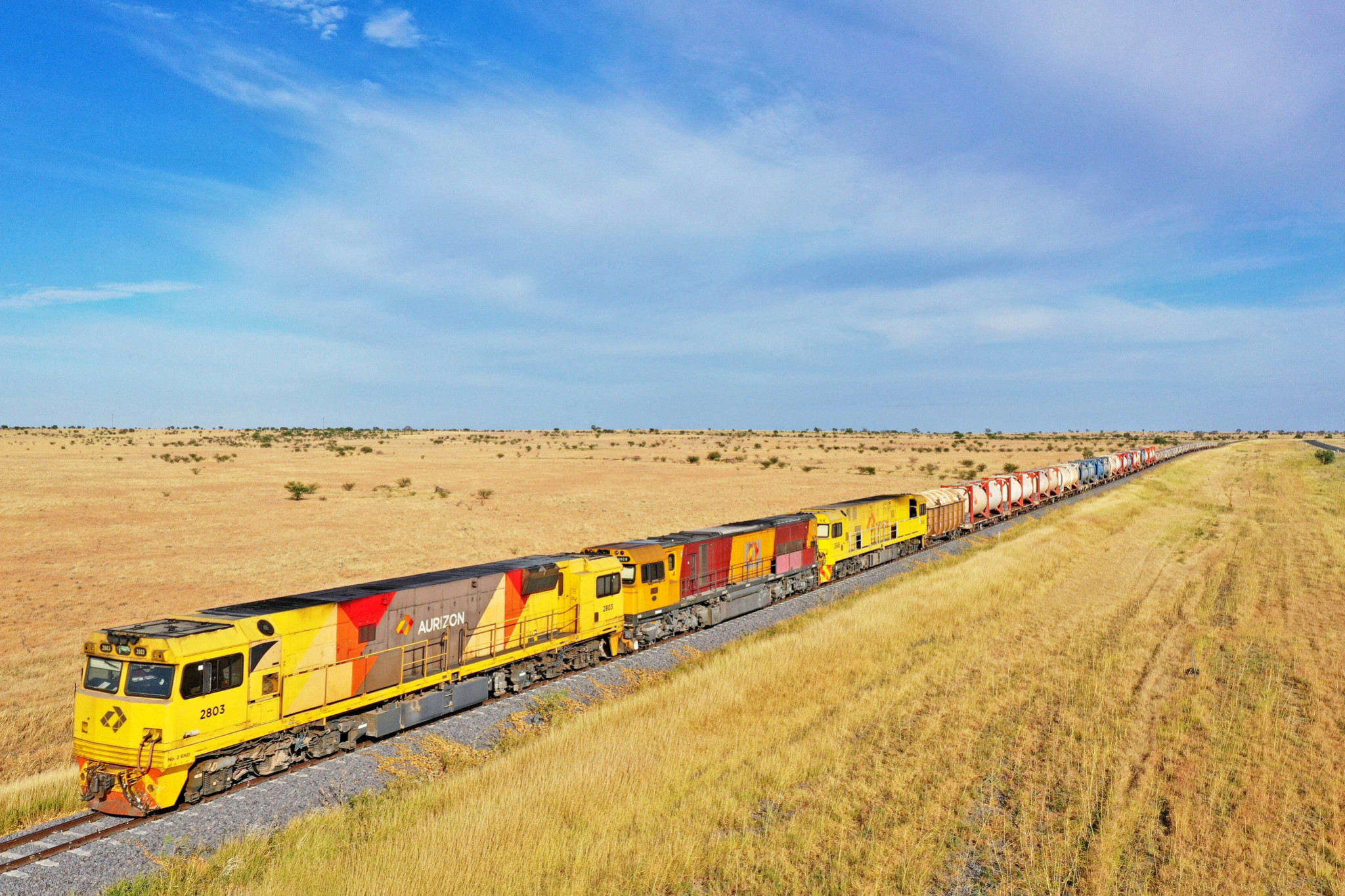General News
24 June, 2025
Rail vision: Phosphate miner reveals Cloncurry-Karumba plan
A rail line between Cloncurry and Karumba is back on the table for a North West phosphate miner.

A rail line connecting Cloncurry to Karumba could be on the cards after a North West phosphate mine said it was beginning a feasibility study into the prospect.
Chatham Rock Phosphate Ltd’s “RailPhos” project would connect its Korella North Mine to the Port of Karumba. It involves the building of the long-mooted Cloncurry to Normanton rail line with an extension to Karumba.
The rail project could cost up to $4 billion, although CRP executive director Colin Randall said he was not concerned about the price of the rail network.
“This won’t be reliant on any government funding, which is why it can work,” he said, indicating that he’d like to have the rail line completed by the early 2030s.
Asked if he would be looking to China for investment, Mr Randall was nonchalant with his response.
“Of course. Yes. There’s no one else,” he told North West Weekly.
“If there is demand and interest in the rail line, it’ll happen.
“The demand is from China, and to a certain extent, Indonesia (for rock phosphate).
“Until three years ago, China did not import any phosphate at all. Last year, they imported four million tonnes.
“The simple reason is that Chinese phosphate is high in arsenic.
“Unless they can get low-arsenic phosphate into their manufacturing process, they really can’t export it, because it exceeds the normal standards for export.”
Mr Randall, who has been living in Cloncurry for a number of years, said creating a rail line was the only way to export efficiently.
“I’ve been working in the phosphate space since 2010, and phosphate, like coal, is simply a bulk commodity,” he said.
“If you treat it like a concentrate and put it in boxes, it just doesn’t work. It’s too expensive.
“Unless you move phosphate on rail in bulk and load in bulk, it will never work.”
The Cloncurry to Karumba rail line would be designed to be an all-weather operation to enable export of up to 10 million tonnes per annum of phosphate through a common-use facility at the Port of Karumba.
Mr Randall said Chatham was engaging with potential customers in China/Indonesia, rail construction companies, railway operators, landowners, construction material providers and existing/potential phosphate miners, inviting them to participate as potential joint venture partners in RailPhos.
“The feasibility study will establish the scope, cost and programme for delivery of railway track and rolling stock to build and operate RailPhos and will include consideration of government approvals, funding and title requirements for the rail corridor and other assets,” he said.
“To enable third-party users of RailPhos, the feasibility study will also consider the establishment of common user bulk rail loading facilities at Mirri (Phosphate Hill), Mount Isa, and Duchess.”
Chatham Rock Phosphate Ltd is listed on the Toronto, New Zealand and Frankfurt stock exchanges.
Its original aim was the undersea mining project on the Chatham Rise, east of New Zealand.
Mr Randall said he understood there would be sceptics about the rail project, but insisted that RailPhos could be a success.
“This is not a government railway. We will be involving landowners who will have a commercial imperative to be involved,” he said.
This is not the first time that someone has mooted a rail system between Cloncurry and Karumba.
“Back in 2012, there was one called Carpentaria Rail, but there was no individual commodity that could drive the need and get the facility built,” Mr Randall said.
“When you went to build something in the coal business, there were three things you had to have.
“Passion, patience, and persistence. And that’s what I have a lot of. And the fact that I live in Cloncurry puts me in a slightly different position. This is something that I personally want to see happen.”
Mr Randall said Korella North was the only North West phosphate mine capable of loading directly in bulk onto rail.
“Phosphate companies with currently no access to bulk phosphate rail transport options are North West Phosphate, Centrex, Avenira, Australia Venus Resources and Golden Cross Resources,” he said.
“Transport in bulk by rail and transhipment of phosphate through the Port of Karumba into Panamax and larger ocean-going vessels anchored in the Gulf of Carpentaria, provides the only economical means of exporting phosphate.”
RailPhos would be designed to enable export of up to 10 million tonnes per annum of phosphate through the Port of Karumba.
“If you want to look at the world leader in building across floodplains, it’s the Chinese,” the executive director said.
“In the last year, they’ve built 3500km of rail.”
Mr Randall said using the rail line to Townsville was not a viable option for bulk rock phosphate due to limited capacity at the Port of Townsville.
Panamax ships are also too big for Townsville, he said, and smaller ships were uneconomical.